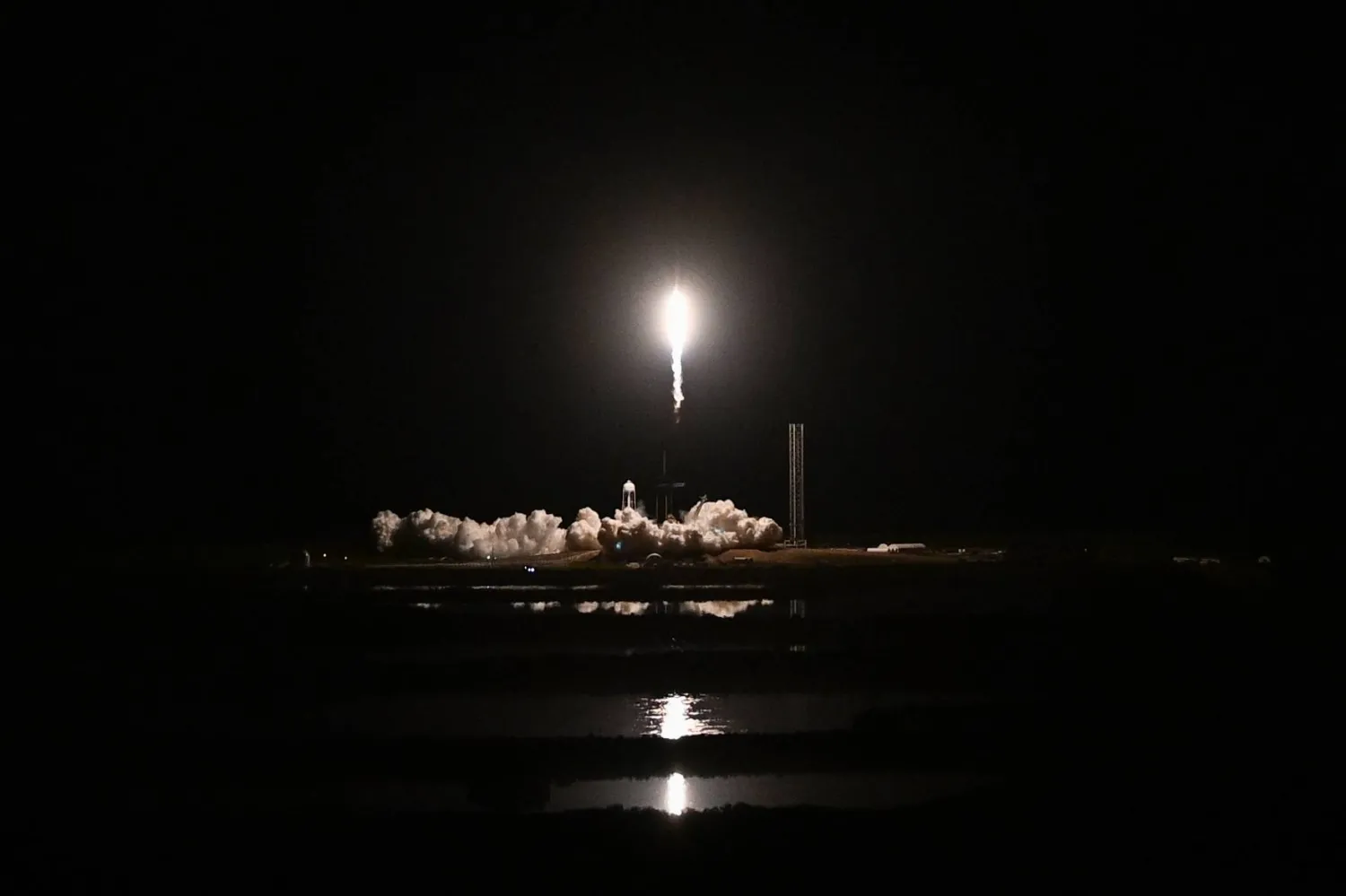Four astronauts headed to the International Space Station on Sunday where they will oversee the arrivals of two new rocketships during their half-year stint.
SpaceX’s Falcon rocket blasted off from Kennedy Space Center, carrying NASA’s Matthew Dominick, Michael Barratt and Jeanette Epps and Russia’s Alexander Grebenkin, The Associated Press reported.
The astronauts should reach the orbiting lab on Tuesday. They will replace a crew from the US, Denmark, Japan and Russia, who have been there since August.
“When are you getting here already?” space station commander Andreas Mogensen asked via X, formerly Twitter, after three days of delay due to high wind. SpaceX Launch Control termed it “fashionably late.”
There was almost another postponement Sunday night. A small crack in the seal of the SpaceX capsule's hatch prompted a last-minute flurry of reviews, but it was deemed safe for the whole mission.
The new crew's six-month stay includes the arrival of two rocketships ordered by NASA. Boeing’s new Starliner capsule with test pilots is due in late April. A month or two later, Sierra Space’s Dream Chaser, a mini shuttle, should arrive. It is for delivering cargo to the station, but not passengers yet.
Epps was originally assigned to fly Boeing’s Starliner, which got bogged down with problems and stalled. NASA finally switched her to SpaceX.
“I am in a New York state of mind right now, it is amazing," she said upon reaching orbit, referring to the Billy Joel song.
Epps, who is from Syracuse, NY, is the second Black woman assigned to a long station mission. She said before the flight that she is especially proud to be a role model for Black girls, demonstrating that spaceflight “is an option for them, that this is not just for other people.”
An engineer, she worked for Ford Motor Co. and the CIA before becoming an astronaut in 2009. Epps should have launched to the space station on a Russian rocket in 2018, but was replaced for reasons never publicly disclosed.
Also new to space are Dominick, a Navy pilot, and Grebenkin, a former Russian military officer.
Barratt, a doctor on his third mission, is the oldest full-time astronaut to fly in space. He turns 65 in April.
“It's kind of like a roller coaster ride with a bunch of really excited teenagers,” Barratt said after reaching orbit. As for his age, he said before the flight, “As long as we stay healthy and fit and engaged, we’re good to fly."
Flight controllers are monitoring a growing cabin leak on Russia’s side of the space station. The leak has doubled in size in the past few weeks and the area has been sealed off, NASA program manager Joel Montalbano said. He stressed there is no impact to station operations or crew safety.
4 New Astronauts Head to ISS for 6-month Stay

A SpaceX Falcon 9 rocket with the Crew Dragon Endeavour capsule carrying the Crew-8 mission launches from launch pad 39A at NASA's Kennedy Space Center in Florida on March 3, 2024. (Photo by CHANDAN KHANNA / AFP)

4 New Astronauts Head to ISS for 6-month Stay

A SpaceX Falcon 9 rocket with the Crew Dragon Endeavour capsule carrying the Crew-8 mission launches from launch pad 39A at NASA's Kennedy Space Center in Florida on March 3, 2024. (Photo by CHANDAN KHANNA / AFP)
لم تشترك بعد
انشئ حساباً خاصاً بك لتحصل على أخبار مخصصة لك ولتتمتع بخاصية حفظ المقالات وتتلقى نشراتنا البريدية المتنوعة







